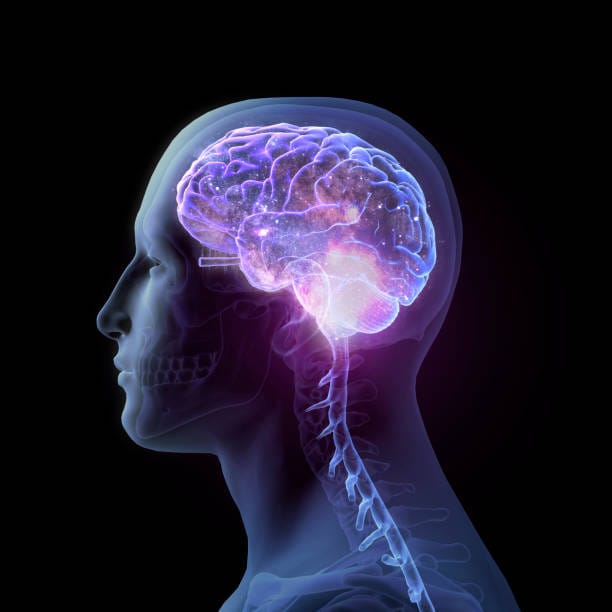For many people living with bipolar disorder, the darkest moments often don’t come from the wild energy of mania, but from the long, heavy silence of depression. During those episodes, even memory becomes a trap—tilted toward self-criticism, filled with recollections of failure, shame, and helplessness. The brain doesn’t just remember facts; it remembers feelings. And for those caught in the depths of depression, those feelings are often skewed darkly inward.
But what if there were a way to gently nudge those memories in another direction? What if a drug could help the brain lean toward hope, even for a moment?
New research suggests that lamotrigine, a medication widely used to prevent depressive episodes in bipolar disorder, may do just that. Not by changing mood in an obvious or overwhelming way—but by subtly shifting how we remember emotionally significant information. And, intriguingly, this shift seems to begin even in those who aren’t depressed.
Looking Beyond the Surface of Stabilization
Lamotrigine is often prescribed to people with bipolar disorder, especially to prevent relapses into depression. It’s a proven stabilizer—not flashy, not fast-acting, but reliable over time. Unlike many medications for bipolar disorder, which are better at calming mania than preventing depression, lamotrigine has carved out a reputation as one of the few options that consistently supports the depressive side of the disorder.
Yet for all its clinical success, there’s been a lingering question about how it actually works. Not biochemically—scientists know it interacts with sodium channels and affects glutamate—but psychologically. What processes in the mind might lamotrigine influence? Could it alter not just the emotional experience of depression, but the very cognition that feeds into it?
These were the questions that researchers at the University of Oxford and the University of Minho set out to explore. What they found offers a tantalizing glimpse into the mental machinery of mood—and how a single pill might begin to shift its gears.
The Experiment Behind the Curtain
The study focused on a simple but profound question: how does lamotrigine affect the emotional memory of people who are not currently struggling with any psychiatric illness? The researchers wanted to remove the noise of existing mood disorders, to isolate the cognitive effect of the drug itself.
To do this, they recruited thirty-six healthy volunteers, aged 18 to 40, all free of any history of mental or neurological illness. These participants were randomly assigned to receive either a single 300-milligram dose of lamotrigine or a placebo. Then they waited three hours—enough time for the drug to enter the bloodstream and reach the brain.
After that, the participants were led through a series of tasks designed to probe how they processed, remembered, and interpreted emotional information. These weren’t vague surveys or open-ended conversations—they were computerized cognitive tasks developed by the Oxford Emotional Test Battery, a well-established toolkit for studying emotion in the lab.
Among them was a particularly interesting task involving self-reflection. Participants were shown a series of personality-related words—some warm and positive, like “kind” or “thoughtful,” and others harsh and negative, like “lazy” or “bossy.” They were asked to imagine these words being used to describe them personally. Later, after a period of distraction, they were asked to recall as many of the words as they could.
This was where the results came alive.
When the Brain Leans Toward Kindness
Participants who had taken lamotrigine recalled significantly more positive words than negative ones—a measurable shift in emotional memory. The placebo group did not show this same pattern. It wasn’t just a matter of remembering more words overall. The tilt was specific: the drug appeared to enhance positive recall related to self-image.
To anyone unfamiliar with the intricacies of depression, this might sound like a trivial finding. But for psychologists and psychiatrists, it touches on one of the core cognitive features of mood disorders: the negativity bias. People with depression tend to ruminate on past failures, to remember unkind remarks more than compliments, to see themselves through a lens that exaggerates flaws and downplays strengths.
Medications that successfully treat depression often seem to reverse this bias, and not always in ways patients can immediately detect. In fact, one of the more compelling theories about how antidepressants work is that they first shift emotional processing, especially regarding how individuals interpret and remember information about themselves, long before mood begins to improve.
What this new study suggests is that lamotrigine might do something similar. Even in people who are not depressed, it subtly nudges emotional memory in a more hopeful direction.
The Mind’s Mirror: More Than Mood
Interestingly, the study found that this effect was highly specific. Lamotrigine didn’t broadly alter the way participants recognized facial expressions, categorize emotional words, or focus attention on emotional stimuli. Nor did it affect their mood or anxiety ratings throughout the day. Participants didn’t report feeling better, happier, or more relaxed.
The shift was only visible when looking at how the brain chose to remember.
This pattern suggests that lamotrigine may not influence how emotion is felt in the moment, but rather how it is processed, especially when it’s personally relevant. That’s a subtle but powerful distinction. Memory is not just a record of what happened—it’s a guide for how we feel about ourselves. And if lamotrigine helps bias that guide toward self-compassion, it may explain why the drug offers protection against depression over the long term.
Hope, With Caution
Still, the researchers are careful not to overstate the findings. The study had a relatively small sample size, and the positive memory bias was the only standout result among several emotional tasks. Statistically, that opens the door to false positives—effects that might not hold up in larger samples or with more stringent testing.
There were also some quirks in the data. For example, the group that received lamotrigine reported more side effects, even before the drug was administered. They also had slightly higher levels of trait anxiety, which may have influenced the results in ways the researchers couldn’t fully control for—despite their best efforts to adjust the analysis.
And then there’s the fact that all the participants were healthy. While that makes the data cleaner from an experimental standpoint, it also means we don’t yet know how these effects would play out in people with bipolar disorder or depression, where emotional memory is already skewed and fragile.
A Seed for Future Healing
Even so, the study opens an important door. It gives researchers a framework for exploring how cognitive shifts, not just mood changes, might underpin the success of long-term treatments for mood disorders.
Lamotrigine has long been known to help prevent depressive relapses, but this is one of the first hints that it might do so by quietly reshaping emotional memory. The drug might not brighten a patient’s day in the way that traditional antidepressants sometimes do, but it could help make their recollections less punishing—and over time, that could change how they see themselves and their lives.
This echoes previous research, both in animals and humans. In rodent studies, lamotrigine has improved memory performance. In children and adults with bipolar disorder, long-term treatment with the drug has been associated with better working memory and executive function. Now, researchers are beginning to ask: what if lamotrigine also improves emotional memory—the stories we tell ourselves about who we are?
Shaping Tomorrow’s Treatments
The next steps are clear. Larger studies need to test whether these memory effects persist with repeated dosing, whether they appear in people with clinical depression, and whether they correlate with real-world outcomes like improved self-esteem, reduced relapse rates, or enhanced daily functioning.
This line of inquiry could also inspire new treatments—ones that focus not just on lifting mood, but on retraining the brain’s emotional lens. If the stories we remember shape how we feel, then medications that rewrite those stories could revolutionize mental health care.
For now, though, the findings offer something both scientifically exciting and emotionally resonant: the idea that a single dose of a medication could quietly, briefly, make someone remember the good things about themselves more vividly than the bad.
It’s not a cure. It’s not a miracle. But it might be a beginning—a subtle shift in the weight of memory that helps pull someone back from the edge.
The study was published in Psychological Medicine.






